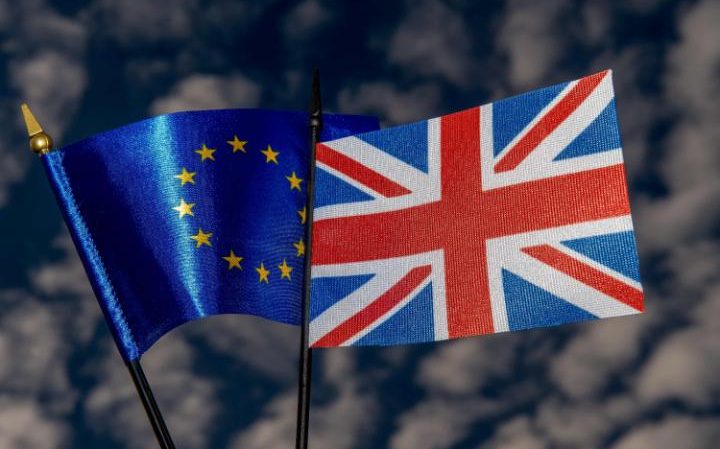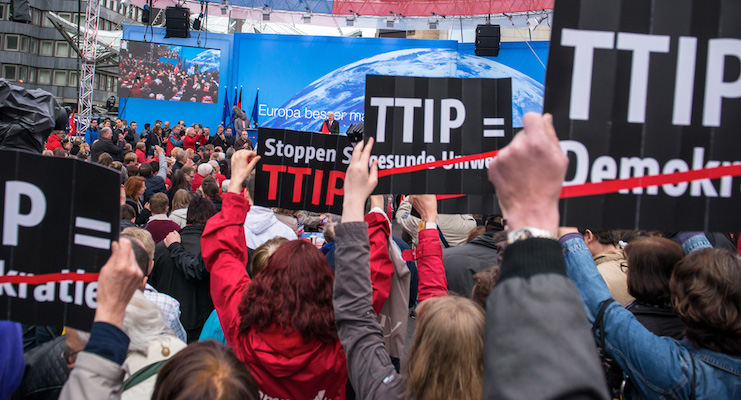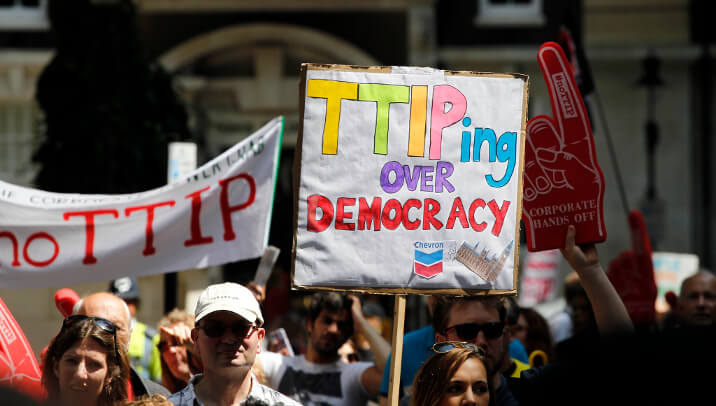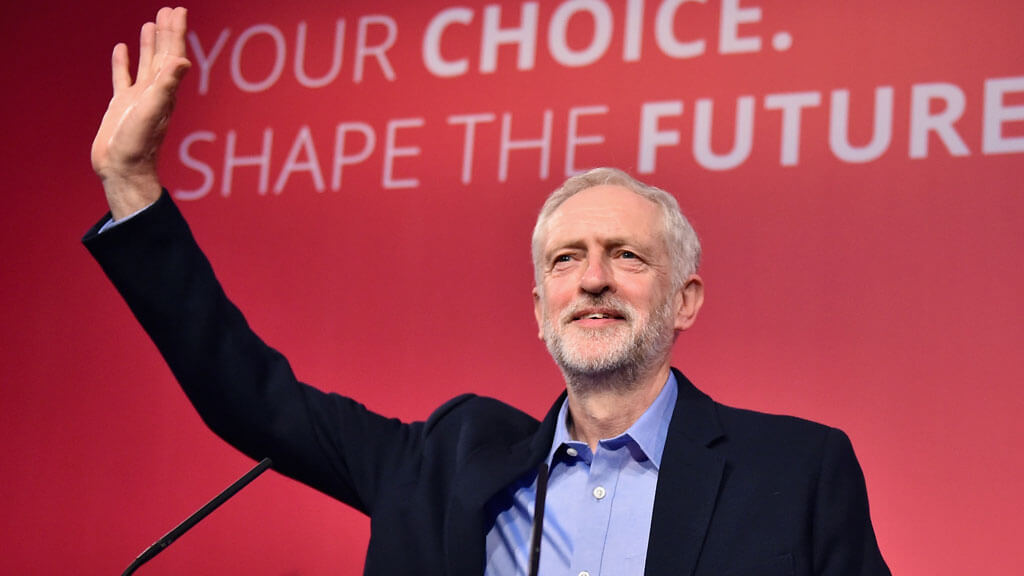By Oliver Huitson
In the fuzzy world of European identity and future though unspecified “reforms” the EU can sound great. But I’ll be voting on what the EU is, and what it does, and what it wants to do.
There seem to be two clear camps on the Brexit question: those who loathe the EU, and those who don’t know much about it. Even its highest profile supporters feel the need to list its profound shortcomings as part of their rallying cry to Remain. The most surprising thing about the debate so far isn’t that the left have, in general, sided with Remain. It is that so many of them have shown complete indifference to fundamental democratic rights.
Having followed the EU’s ruthless crushing of Greece and her workers, having watched the shameful and shadowy progress of TTIP through EU chambers, many Remainers have no love for the EU. They see the EU as a least bad option – it is not something to be cheered or romanticised. And I have every sympathy with that position.
The angry liberals, however, the ranty remainers, are another story. The EU is the embodiment of human progress, it has saved 500m people from bitter war, it is the post-national dream made reality; it’s the EU or the gas chambers! There seem to me two chief drivers of this view. One concerns identity. As seen in the discourse on the Scottish referendum, for many English the Scots were their lifeline, their ‘Britishness’, their ‘internationalism’ – their non-Englishness, ultimately. As Simon Hattenstone wrote in the Guardian, a Scottish Yes would “reduce me to my core Englishness. I would be a little Englander – an identity I’d always despised”. The same is true of Europe.
But many voters have more material concerns – wages, jobs, and access to housing and public services. This is why Labour is again being pulled in two directions, and you can’t win an election on the Guardian circulation. In the north of England Leave is a widespread and popular stance amongst Labour voters; it is now estimated 44% of Labour voters are for Leave. The prospect of a collapse in the northern Labour vote is very real, #indyref round 2. It does not help matters that Labour has imposed such discipline on the issue: a scenario which has given rise to the awkward scene of lifelong Eurosceptic Jeremy Corbyn pretending to be an EU supporter.
The second driver of anti-Brexit rage is ‘the Tories’, or more accurately, the notion that without the EU all this country amounts to is ‘Tories’. Just like opposition to an English parliament, three words settle the argument: ‘permanent Tory rule’. If you can’t get democratic support in your own country then simply outsource power to an unelected elite whose outlook you prefer. Never let it be said that Remain are overly constrained by principle.
So this segment of Remain is part identity – Europeanism – and part fear that the witless public will endlessly elect Tory governments. Neither make much sense to me. Europe has been around long before, and will be around long after, the EU. To be a European is a matter of culture, geography and history. It is not something bestowed by an unpopular and undemocratic bureaucracy in Brussels. This is about the EU, not Europe. We are not proposing to hook up an armada of tugboats and haul Blighty out into the Pacific or the South China Sea. As for permanent Tory rule, they have a 12 seat majority from an allegedly illegal election campaign, and have only just returned to power after 13 years in the wilderness. If you don’t like Tories you can vote against them. You cannot vote against the EU Commission.
“There can be no democratic choice against the European treaties” (Jean-Claude Juncker, President of the European Commission)
The EU doesn’t deem the little people of Europe worthy of electing their own executive. It is the unelected Commission, not the elected parliament, that makes the laws and wields the real power. Those trying to pass off the Commission as equivalent to our Civil Service are being profoundly dishonest. To forego such a fundamental democratic pillar as electing your own law makers you’d better be getting an awful lot back in return, and you’d better be very sure indeed that your unelected masters will always act in your interests. The former is highly questionable, the latter is demonstrably untrue.
TTIP
Take TTIP. A colossal trade deal between the EU and the US, negotiated with extreme secrecy, which is likely to reduce standards and regulations down to the lowest common denominator, and which will allow businesses to sue European states for passing legislation that limits their profits, even if it is in pursuit of entirely legitimate goals: for instance curbing pollution, or nationalising a failing utility company. Canada has already paid out over £100m to US corporations as a result of similar measures in the notorious North American Free Trade Agreement (NAFTA). Of those at the table on TTIP, 92% were corporate lobbyists.
The official report into TTIP commissioned by the EU itself suggested it would lead to the loss of 1.3m jobs in Europe – that it is still pursuing the deal speaks volumes about which interests it serves and its understanding of what ‘economic progress’ looks like. Similarly, NAFTA is reported to have led to the loss of a million jobs in the US. When asked about European opposition to TTIP, EU Trade Commissioner Cecilia Malmstrom replied, “I do not take my mandate from the European people”, just in case anyone was labouring under the illusion that the Commission works for the European people.
TTIP poses such a clear danger to the NHS that activists across the country are up in arms against it. As outgoing Green party leader Natalie Bennettargues, TTIP threatens to “blow apart the power of our democratic decision making.”
Yet TTIP is not some passing aberration, a moment of absent mindedness from our worker loving overlords in Brussels. On the contrary, TTIP lays bare the guiding principles of the modern EU: creating the best possible corporate environment with minimal barriers to profit. Sadly this often trumps the interests of working people, citizens and taxpayers. This is all entirely of a piece with globalist economic designs, of which the EU is a key protagonist: higher profits, lower wages, less people on the payroll and a weakened labour force. That is the primary function of free movement, it is not a fluffy multicultural project.
It is often implied that Brexit would be abandoning our social democratic European brothers and sisters, when the reality is that there is strong feeling against the EU – not Europe – across the continent. Whenever given the chance to vote on the EU – Dutch, Irish, French – the usual result is a No. A poll has just showed nearly half of Italians want to leave, as well as 41% of the French, and the Dutch are now overwhelmingly in favour of their own referendum. Norway, a paragon of left wing virtue, refused to join the EU in referenda in 1972 and 1994 and the Norwegians remain firmly committed to staying out to this day. If the EU really is so wonderful and indispensable, why aren’t the Norwegians buying it? Maybe they’re just an ignorant mob of racists too.
Norway
As we face laughable claims from the British government it’s worth bearing Norway’s experience in mind. Our government has claimed Brexit would lead to losses of over £4,000 per year per household by 2030, a report so flagrantly dishonest in its figures it has caused little but sniggers from economists. This is the same government which has consistently got its predictions completely wrong even when its crystal ball is only peering 6 months into the future, let alone 14 years. The same scaremongering was aimed at the Norwegians in 1994: thousands of jobs will be lost, investment will crumble, interest rates will climb, and so on. It was all nonsense. As a financial newspaper put it in 1995,
“Everything has gone better for the Norwegian economy since Norway said no to the EU on 28 November last year. Interest rates have fallen, growth has increased, the budget deficit has evaporated and investments are rocketing sky high.”
The exact same threats were issued to try to force us to join the Euro, an utterly disastrous project. On the big questions of our time economists have had about as much predictive power as Mystic Meg on a heavy dose of ketamine. There are some good arguments for Remain, but not many, and they have nothing to do with ‘trade deals’ or ‘war’.
Trade deals
The idea that Britain could not trade with the EU is possibly the biggest nonsense of the Remain campaign. Of course we would have a trade deal, we are a big economy and a big importer of EU goods: we could join the EEA, EFTA, or simply strike bilateral agreements. Belarus is the only non-EU state in Europe that doesn’t have tariff free access to the single market. It’s not easy to raise existing tariffs under WTO rules even if you want to. As Aaron Bastani argues, yes, the EU will want to punish the UK for Brexit, but I just don’t think it has the economic or political strength to follow through. Punishment would only boost the Leave camps in every disgruntled nation in Europe. And which unelected middle manager is going to break the news to EU exporters that they’re losing their jobs to “make an example of Britain”? (The vindictive nature of the EU is being deployed, strangely, as an argument to Remain).
But let’s assume hypothetically that we couldn’t strike a deal or join any European trade grouping (for reasons never explained). Neither Britain nor the EU has trade deals with the USA, China or Japan, to name just three; yet these are some of the EU’s biggest trading partners. Any country in the world can trade with the EU. Why? Because you don’t need a trade deal to trade – tariffs have been declining around the world for some time. Of all the reasons to vote Remain, trade deals is one of the poorest. When you look at the contents of the TTIP deal (in fact, you can’t, nor can our MPs) you will probably consider a lack of trade deals a supreme act of mercy.
The economic gains of leaving include regaining control of our fishing waters, the ability to strike trade deals with anyone we want (for those who believe such things critical), a slow down in house prices, and a rise in wages – that’s according to Lord Rose, head of the Remain camp (Remain promptly shut him away in a bunker for the duration of the campaign). Rose did make clear rising wages were a bad thing, just to be absolutely clear on the economic agenda of the Remain leaders. And we also save around £160m a week, net. Finally, it should be remembered that as we are a net contributor the EU does not actually “fund” anything in this country at all: it simply reallocates some of our own money without our say so, after it’s taken its cut.
As for “social Europe”, the EU could hardly be a stronger expression of neoliberal orthodoxy: a single market of competition, harmonisation, privatisation and cross border access; a single large pool of labour, from which business can and does employ the cheapest; the formal removal of power away from the democratic sphere and into the hands of technocrats; ultimately, the subordination of the social to the market. The EU has shown it is quite willing to simply impose governments on member states – basic democratic values be damned if they anger the banks. Instead of judging the EU by utopian views of what future society should look like, it is better judged on what it actually does and what it plans to do.
Rail
The great British train robbery of privatisation has been an obscene fiasco that has transferred billions of pounds to private rail operators and shareholders. Fares are now the highest in the world, according to UBS. If you want rail renationalised, if you want a return to the sort of sane, cheap travel that you can see across Europe, then you need to think again. By 2019, the EU’sFourth Railway Package requires market access to all passenger rail across the continent. The EU’s privatisation of European rail is well under way, just ask the rail unions across Europe.
“It would be ludicrous for a union like ours to support staying in a bosses’ club that seeks to ban the public ownership of our railways, and attacks the shipping and offshore sectors” – Mick Cash, Rail Maritime and Transport union (RMT) General Secretary
The EU is taking the worst model on the continent, the British, and imposing it on the best. Why? Profit and ideology.
Mail services
Similarly, the Tories cut price sell off of Royal Mail, in which George Osborne’s best man made a handsome windfall, caused outrage around the country. If you think the EU is the solution to this sort of crony capitalism and botched cartel ‘markets’ then forget it: the EU’s Postal Service Directive, in its own words, “fully opens the sector to competition”. Indeed, EU directives played a key role in Royal Mail’s privatisation.
“…our membership of the EU would prevent us from ever taking Royal Mail back into public ownership.” Trade Unionists Against the EU
The EU is not a barrier to privatisation, it is one of the main drivers.
To be clear, the EU’s desire to marketise vast swathes of public life has not been requested by the European people, nor is there any ballot in which they can stop it happening. The EU’s understanding of how economies should operate is wholly in line with globalist free market dogma. So it was entirely predictable that Remain is supported by the Bank of England, the IMF, the Treasury, the OECD, the World Bank, the White House and the fantastically sinister Tony Blair, the oligarch’s oligarch. Elite institutions tend to favour elite institutions: these are the architects and protectors of a failed 30 year experiment of market fundamentalism. So it comes as no surprise to learn ofRemain’s big funders: Goldman Sachs, JP Morgan and Morgan Stanley.
Step aside, trade unions, the archangels of workers’ rights have descended…
Remain is not a ‘safe’ option
The big picture here is an EU on a dangerous and oppressive path, towards imposed market liberalisation, secret trade deals, workers’ rights ignored when fiscal demands are deemed more important, vicious austerity imposed whatever the costs, national governments and referendums ignored when the banks or Brussels don’t like the results, governments removed when they anger the EU, a vindictive European Central Bank that threatens member states with bank runs for disobedience, a profound contempt for democratic process and an ever-present power creep. If this is what ‘social Europe’ looks like, let’s hope the Commission doesn’t take a rightward direction. And in the absence of a meaningful vote, let’s be frank, hope is all we have.
The EU is now a bullying, unstable menace: no one knows what laws the Commission will pass, what secret corporate deals it will sign, or which new countries it will bring in. The collapse of the Eurozone is a question of when, not if: it is a fundamentally flawed project. There is nothing remotely “stable” or ”safe”about the EU.
Remain but ‘reform’
If genuine reform of the EU was a serious proposition then none of this would be quite so important. But it isn’t. Cameron tried with a gun to their head – and failed. Greece tried and failed. The Irish, Dutch and French all tried and failed. The EU will not be reformed. It is becoming more aggressive, less democratic,more militantly neoliberal, and millions of Europeans would be overjoyed to see us stand up and say ‘no more’. What we have is an EU of elites, by elites and for elites. And I don’t think they’re losing any sleep over DiEM25, however tempting the ‘remain but reform’ position may be, and however decent the intentions of those behind it. It’s hard enough reforming the UK, let alone coordinating a mass European reform movement, against a rising far right tide, and which will need to somehow force significant treaty change on the proudly undemocratic EU. That’s not going to happen, and it isn’t an option at this referendum.
So I will be voting Leave on the 23rd of June, for two main reasons: firstly, the EU represents a failing economic orthodoxy that is harmful to public welfare, that is unjust, and that is indifferent to social needs and norms. Secondly, the EU is not simply undemocratic, it is actively contemptuous of democracy. Better to fight our own battles here, under our own imperfect democracy, than rely solely on the benevolence, wisdom and competence of men we can never elect, and we can never remove.
Oliver Huitson is a press officer for Labour Leave, and former co-editor of openDemocracyUK












